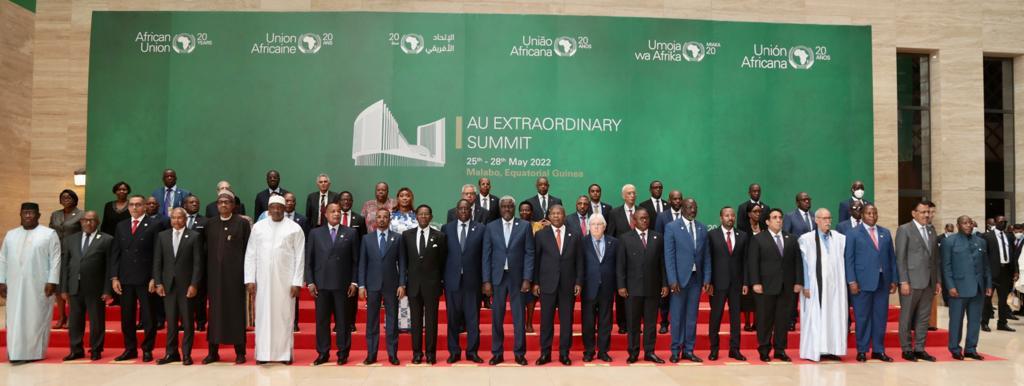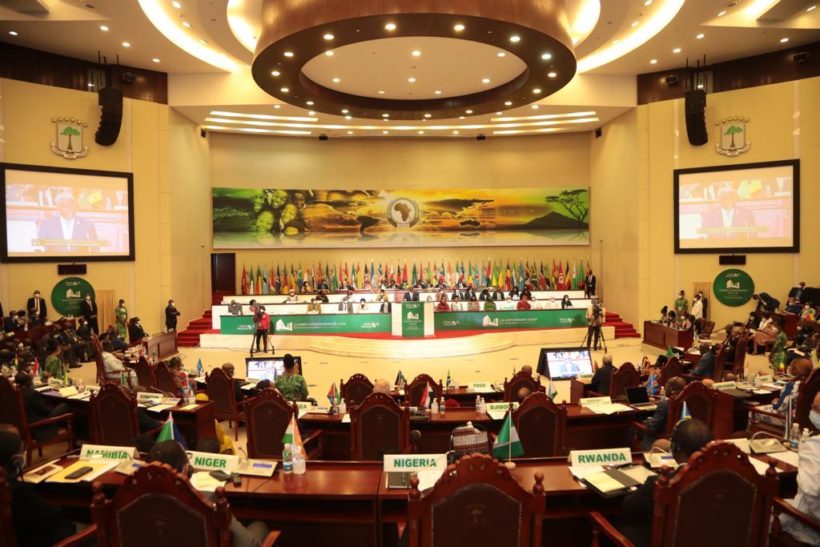The African Union Extraordinary Humanitarian Summit and Pledging Conference took place in Malabo, Equatorial Guinea from 25 to 28 May.
At this Summit, deliberation revolved around the efforts of African leaders to address the current humanitarian challenges facing Africa, which are exacerbated by the socio-economic repercussions of the COVID-19 pandemic and disasters across the continent.

The central objective is to try to identify durable solutions to address the problems raised, especially with regard to humanitarian financing and to contribute to post-conflict recovery, peace and development.
The five thematic areas of discussion were: Climate change, disasters and forced displacement in Africa; Food security and nutrition challenges in humanitarian emergency contexts; Health challenges in the humanitarian space in Africa; Post-conflict reconstruction for refugees and internally displaced persons; and how to revitalise resource mobilisation and funding for humanitarian action in Africa.
The concept notes of the conclave states that humanitarian needs in Africa are driven by climatic catastrophes that have become increasingly recurrent, as well as increased terrorist activities, conflicts, political instability and health pandemics. This has reversed development progress in a number of sectors, including health, education, food security and people’s livelihoods.
Approximately 115 million people are in need of humanitarian assistance in Africa, of which 75 million are vulnerable cases. This includes more than 35 million displaced people, including 6.9 million refugees, 24 million internally displaced persons, 2.7 million people without national protection (stateless persons), 500,000 asylum seekers and more than 1.5 million unsettled returnees. In 2020 alone, there were more than 4.3 million new displacements.
The region suffers from protracted crises that show no signs of abating. In the Horn of Africa, climate-related disasters due to consecutive failed rains and conflict have left more than two million people in need of urgent assistance. In southern Africa, tropical storms in Malawi, Mozambique, South Africa and Zimbabwe have also caused unprecedented humanitarian needs. In Madagascar, acute food insecurity and cyclones have affected more than 1.3 million people.
Drought and famine, as well as violent extremism in the West and Central African region have resulted in more than 32.7 million people requiring humanitarian assistance.
Moreover, the increase in climate-related disasters requires Africa to increase its climate adaptation funding. Globally, fifteen countries are ranked as the most vulnerable and least prepared to adapt to climate change. Of these, twelve are in Africa. These countries received less than six per cent of adaptation funding in 2019, indicating ominous adaptation deficits.
At the same time food insecurity has reached critical levels, with households facing large food consumption gaps reflected in very high acute malnutrition and excess mortality, leading to the use of emergency livelihood strategies and asset stripping.
While progress is being made in scaling up Covid-19 vaccination in Africa, more resources are needed to rebuild economies and development plans that were affected by the pandemic. These include the education, employment and health sectors. Marginalised people were disproportionately affected, and investments need to be targeted towards them.
The Summit therefore aimed not only to raise the visibility of humanitarian challenges in Africa, but also to increase support and operational capacity of the African Humanitarian Agency, as well as to secure resource commitments at national, regional, continental and international levels, and to increase and diversify partnerships with traditional and non-traditional donors, in order to make humanitarian action in Africa more comprehensive, timely, efficient and responsive.
Beyond the immediate urgencies, this difficult present, if not energetically addressed with solidarity, reparations for the colonial plunder suffered and public policies aimed at transforming the prevailing system of inequity, augurs the prolongation and deepening of the suffering of African populations.
Photos: Extraordinary Humanitarian Summit of the African Union.










